From the Dean
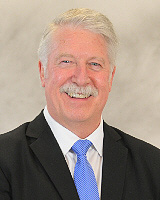
Workplaces for Everyone
Thinking about gender at work is important for us all. It’s especially timely in 2018: More women are running in U.S. House and Senate races than ever before. California is considering fining public companies without women on their boards. And the #MeToo movement has been powerful and far reaching.
In the School of Business, Government, and Economics, we believe that businesses need to be deliberate about designing workplaces where both men and women can thrive. We have to be intentional as a faith-based institution because not only are there issues such as performance evaluation bias and maternal bias, but there are theological understandings of gender at play.
In September 2016, Barna asked 1,000 people, “Are you comfortable with a female CEO?” Ninety-four percent of adults said yes (90 percent for men and 97 percent for women) — but only 77 percent of Evangelicals said yes. The equal treatment of people in the workplace is a theological imperative as well a business imperative. Gender diversity matters!
I hope you enjoy this issue of Shareholders, and that it gives you some ideas of how to make your own offices and factories places where all God’s people can flourish.
Warm Regards,
Ross Stewart, dean
School of Business, Government, and Economics
Why More Gender Equity Is Needed in the Workplace
This piece was shaped by Julia Siemens based on a lecture by Denise Daniels, Professor of Management; Associate Vice President for Strategic Initiatives
I was at a Christian Business Breakfast years ago. As the speaker talked about how his organization developed small groups for Christian business leaders, I was intrigued. “Wow! This would be a great group to be part of,” I thought. I found the speaker at the end of the breakfast and asked how I could get involved.
“Sorry, we only have groups for men,” he said. Unfortunately, I wasn’t surprised.
Based on my own experiences, research data on gender and leadership, as well as my theological convictions, I’ve concluded that Christians in the workplace need to care about gender.
Balanced Workplaces Are Better for Everyone
From a theological perspective, the first chapter of Genesis provides a helpful framework. Scripture says that God created male and female together. God blessed them together. God called them to work together, and God charged them to flourish, together. If this is what God ordained in creation, we need to be sure that our workplaces reflect the value and input of both men and women.
From a pragmatic perspective, 57 percent of 18- to 29-year-old church attendees are women. Interestingly, this is roughly the same ratio we see on college campuses across the United States today. Among business majors, three women graduate with a business degree for every two men.
Research shows us that organizations thrive when women are in leadership. A McKinsey study found that companies with at least three women in executive management are rated more positively by their employees on a large number of factors, including work environment, innovation, accountability, and motivation.
In 2014, Business Insider reported that companies with at least one woman on their board of directors outperform those without women by about 25 percent. And companies with more than one woman on their board do even better. One study by Catalyst shows that companies with more female board members have performance outcomes of 40-60 percent better than companies with fewer women on their boards.
Yet women face unique challenges in the workplace, including lower performance reviews for the same quality of work, lower pay, a much-higher instance of sexual harassment, and greater challenges related to balancing work and family life. A 2016 study by McKinsey found that while women and men start out equally represented in entry level jobs, by the time you get to the c-suite, fewer than one in five executives are women.
Regardless of Your Gender, You Can Make an Impact
Research and Scripture both confirm that having men and women work alongside each other creates a healthier workplace, so what can be done?
First, become aware of your own subtle and unconscious biases. Remember, all of us — men and women — have biases. When we become aware of how our biases impact our decision making, we start to combat them.
Expand your network, and look for mentors and mentees. Women are less likely than men to have connections with people in power. If you are in a position of power, you can intentionally recruit women into leadership roles. Look for ways that women are contributing in your organization and reward them. And don’t stop with just one woman in leadership. Remember, the research shows that organizations with more women at the top have performance advantages.
Although I often feel discouraged by the many studies I read about women in the workplace, I do believe there’s hope. As individuals recognize the roles we can play in creating an equitable workplace, we will see a shift in how both men and women are treated at work.
Alumni: Where Are They Now?
We caught up with three alumnae in corporate leadership.
Sharelle Klaus ’92
Founder and CEO of DRY Soda Co.
Political Science Major

When Sharelle Klaus started DRY Soda Co. in 2005, she was a stay-at-home-mom.
“I didn’t sleep very much,” she says, adding that motherhood helped prepare her to lead a thriving company in many ways. “I like to hire mothers because as moms, we learn to negotiate and to multitask. If anything, being a mom is going to make you better at whatever work you do.”
Now DRY is one of the fastest-growing soda companies in the United States, selling more than 10 million bottles annually. They have two lines of natural soda: lightly sweet DRY Sparkling sodas, and their new line of Zero Sugar sodas.
The company has an all-female executive team. Sharelle says that women are drawn to work at DRY in part because of her company’s commitment to pay women equally.
“It is unbelievable to me that we still have to talk about equal pay for men and women in this day and age,” Sharelle says. “I hope that my daughters and all other young women entering the workforce learn to negotiate better for themselves.”
Maggie Law ’06
Global Mobility Services Manager at KPMG
Accounting and Business Administration Major
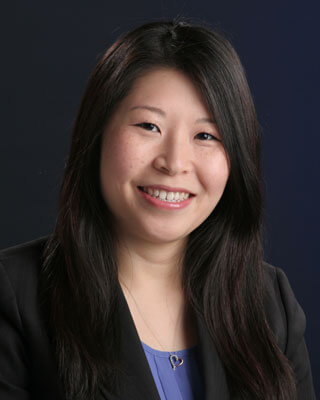
As a manager at KPMG, Maggie Law has noticed that many of her accountants need to be taught how to move up in leadership.
“I want to share how I got here with others,” she says.
She started at KPMG as an intern right after graduation, and has been with the company ever since — working for the company in her homeland (in Hong Kong) and also in India for short stints. Now she manages a local team of 15–20 accountants as well as off-shore teams, where she oversees tax return compliance for some of KPMG’s largest clients.
Maggie has had several male and female mentors and is involved in diversity groups. She volunteered as a co-leader for APIN (Asian Pacific Islander Network), which is a networking, mentoring, and business development group at KPMG. She has also been involved with leadership for the Seattle chapter of Ascend, which offers professional development and career enhancement programs for Pan-Asian professionals.
“I spend my time on these diversity councils because I think it’s important to invest in the future.”
Debra Holland ’80
Commercial Relationship Banking Officer, Vice President at Columbia Bank
Communication Major
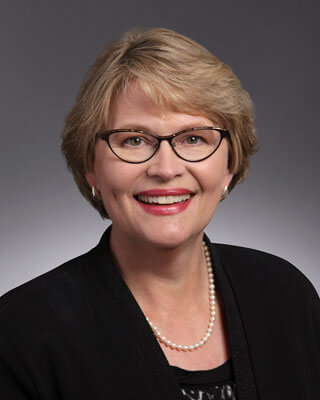
Debra Holland is the kind of banking executive who might reply to your email with a Claudia Castro Luna poem.
“I’m the unexpected banker,” Debra says, adding that she was recruited to banking after nearly 30 years in the nonprofit sector.
“The thought was that it’s easier to teach a nonprofit person banking than to take a dyed-in-the-wool banker and teach them nonprofits,” she says. “People visibly relax when I say, ‘I used to do what you do.’ ”
She’s a vice president at Columbia Bank, where she helps numerous non-profit clients manage deposits and lending relationships.
As a student, Debra remembers seeing the words “To lead is to serve” on campus, and says that phrase has impacted how she sees leadership. “You find this a lot in your SPU grads,” she says. “We want to be servant leaders.”
For Debra, service takes many forms, such as mentoring colleagues, volunteering as the trustees chair of Humanities Washington and for SBGE’s Executive Advisory Board — and sending the right poem at the right time.
Meet the ASSP
Every year, a group of Associated Students of Seattle Pacific (ASSP) students serves the SPU student body for a year. We wanted to introduce you to the two ASSP officers who are also SBGE students.

Celeste Ajayi, Senior
Vice President of Campus Activities
Economics and Political Science Double Major From Roseville, California
What do you do as vice president of campus activities?
The VPCA oversees and offers support to all activities on campus.
Why did you run for VPCA?
I couldn’t see myself without a leadership role, and I wanted to continue my involvement with the Student Union Board as well as help expand the Outdoor Recreation Program and our clubs on campus.
What do you think is SPU’s best event?
Shapadooah! It brings together the entire SPU community to celebrate the end of another great school year and the beginning of summer. There’s plenty of things to do, from rides, to a petting zoo, to free food trucks.
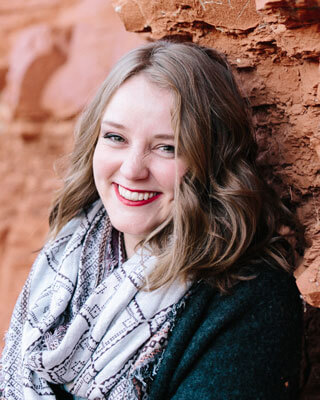
Kaitlyn Payton, Senior
Executive Vice President
Economics Major With a Concentration in International Business From Lubbock, Texas
What do you do as executive vice president?
My role is to create an avenue for students to advocate for change and create the narrative they want on campus.
Why did you run for EVP?
I wanted to leave SPU a better place than when I first came here, and I felt like Senate, which the EVP chairs, was the best way to accomplish that. I want to be a part of something bigger than myself, and EVP was the perfect starting place.
What surprised you about the campaign process?
I had a family emergency and had to go home. My friends handed out flyers, hung posters, and talked to people for me. They rallied around me, and I couldn’t have done it without them.
Faith & Co. Study Guide Now Available
Last spring, SPU launched Faith & Co., an 8-week MOOC (massive open online course) that explores the connection between faith and business. The course is anchored by 13 films, which follow business leaders living out their faith through their vocation. The 10-week guide is designed to be used in conjunction with the Faith & Co. film series to foster spiritual formation through group interaction and discussion.
New Hires
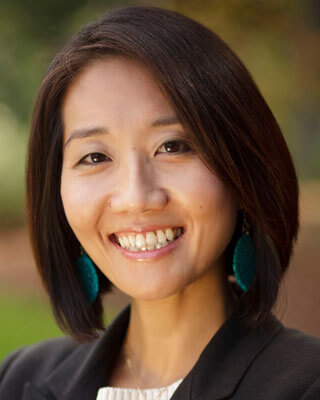
Helen Chung
Instructor of Management
Education: BA, Kalamazoo College, 1995; MTS, Harvard Divinity School, 1998; PhD, Seattle Pacific University, 2018. At SPU since 2016
Dr. Chung completed her doctorate from Seattle Pacific University in Industrial and Organizational Psychology, and her dissertation explored the concept of time in leader storytelling. Her scholarly interests include leadership, coaching for leadership development, the role of narrative in organizational life, and spirituality and faith in work. Dr. Chung’s favorite activities include traveling, hiking, writing, enjoying conversations around the coffee table, and poetry.
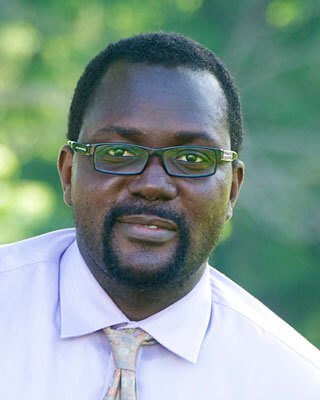
Richard Dadzie
Assistant Professor of Economics
Education: BA, Whitworth University (2005); PhD, University of Missouri-Kansas City (2011)
Dr. Dadzie joins SPU from PricewaterhouseCoopers LLP (“PwC”), where he was a tax manager. Prior to PwC, he was an assistant professor of economics and finance at the University of Hawaii-West Oahu and an adjunct faculty at Whitworth University. He has published in industry and academic journals on profit splits within a multinational enterprise, the role of the state in economic development, and the comparative development experiences of Southeast Asian and Sub-Saharan African countries. Dr. Dadzie enjoys community engagement activities and is very excited about integrating that into his teaching at SPU.
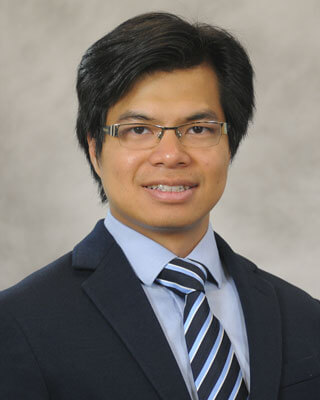
Hau Nguyen
Instructor of Economics
Education: BS, St. Lawrence University, 2011; PhD, University of Notre Dame, 2018
Dr. Nguyen’s research focuses on labor economics, health economics, and economics of aging. He is interested in learning about the economic conditions of vulnerable populations such as immigrants, women, children, and the elderly, and evaluating programs that were introduced to support them. Besides his interests in teaching and doing economics research, Dr. Nguyen enjoys playing piano and tennis, and taking photographs.
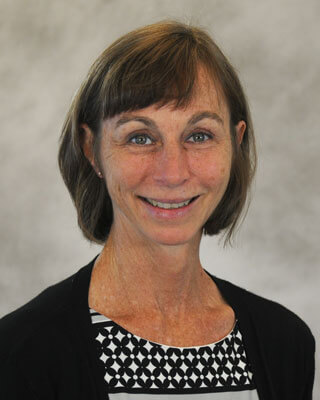
Kathleen Cochran
Executive Assistant to the Dean
Education: BA, University of Washington, 1987; JD, Seattle University, 1990
Before joining the SBGE team, Ms. Cochran worked for a Seattle-based private organization focused on improving and ultimately eliminating the need for foster care in the United States. Prior to that, she practiced law with several law firms in downtown Seattle. In her spare time, she enjoys running, traveling, reading, doing crossword puzzles with her husband, and eating out at all the wonderful restaurants Seattle has to offer.
Events
Mark your calendars for Homecoming and Family Weekend February 1–3, 2019. Beginning in November 2018, you can register for this fun weekend filled with reunions, sports, theater, and the ever-popular student talent show!